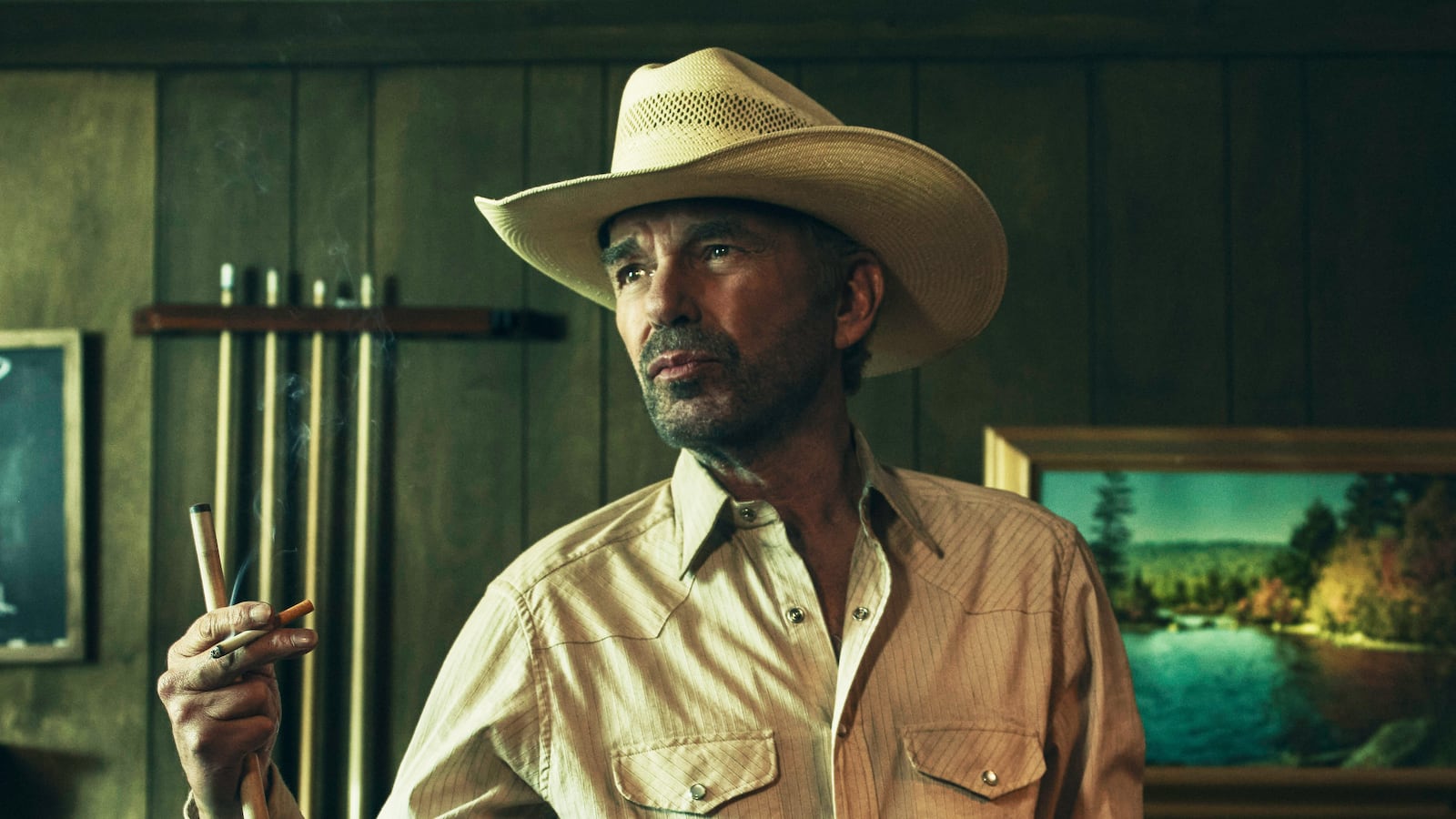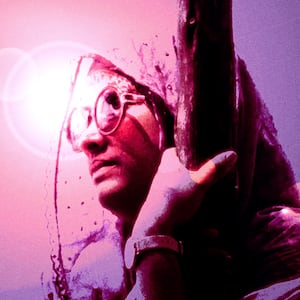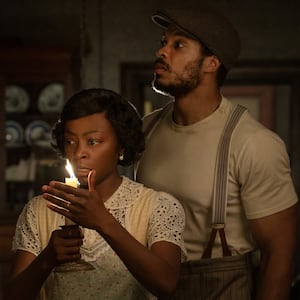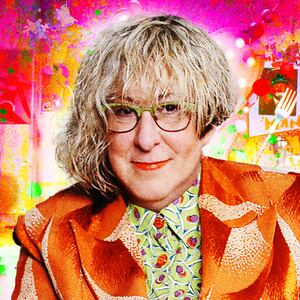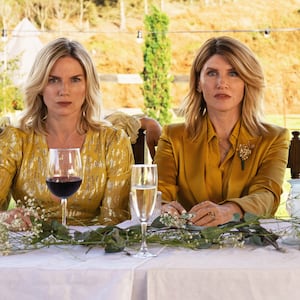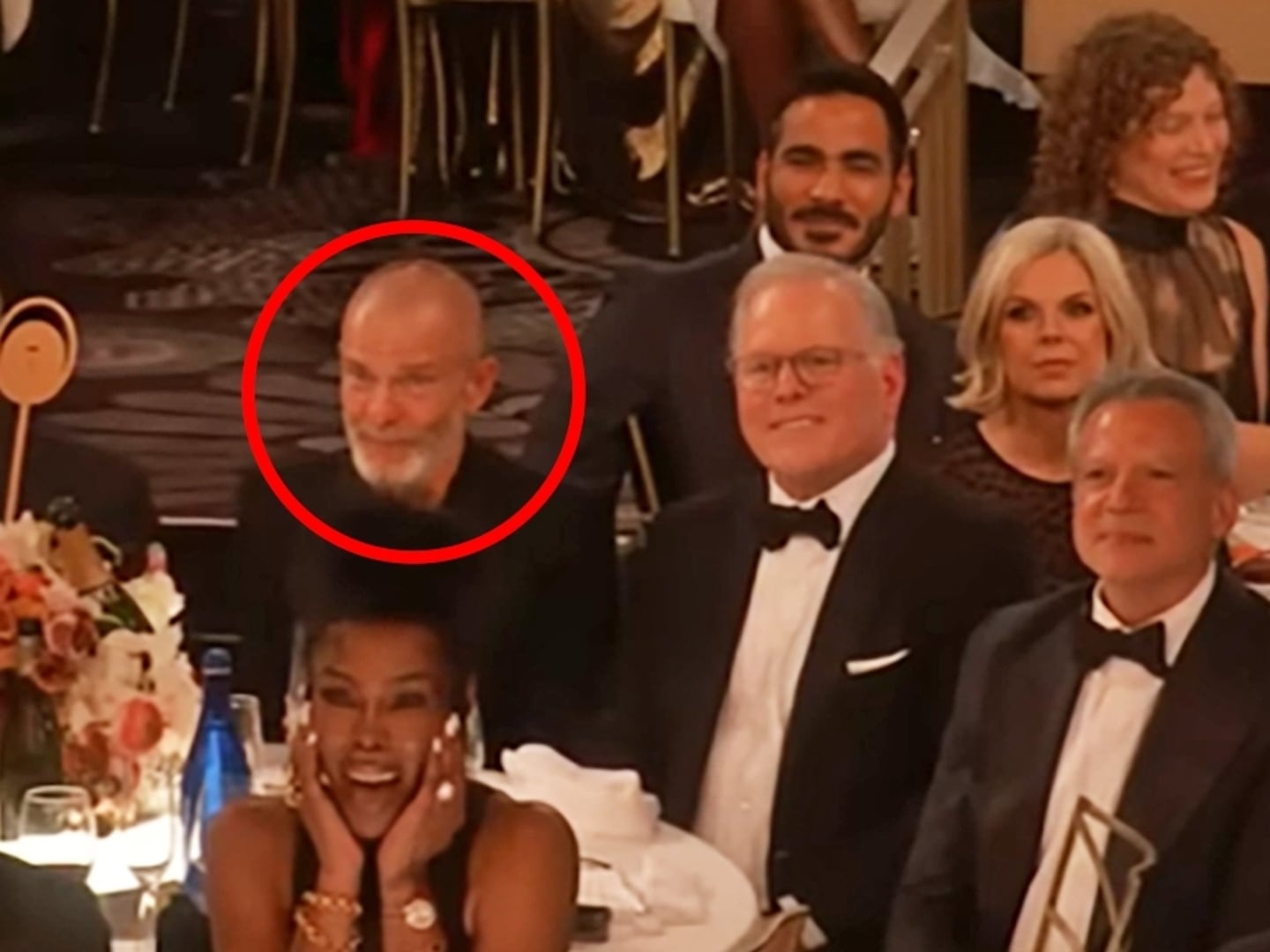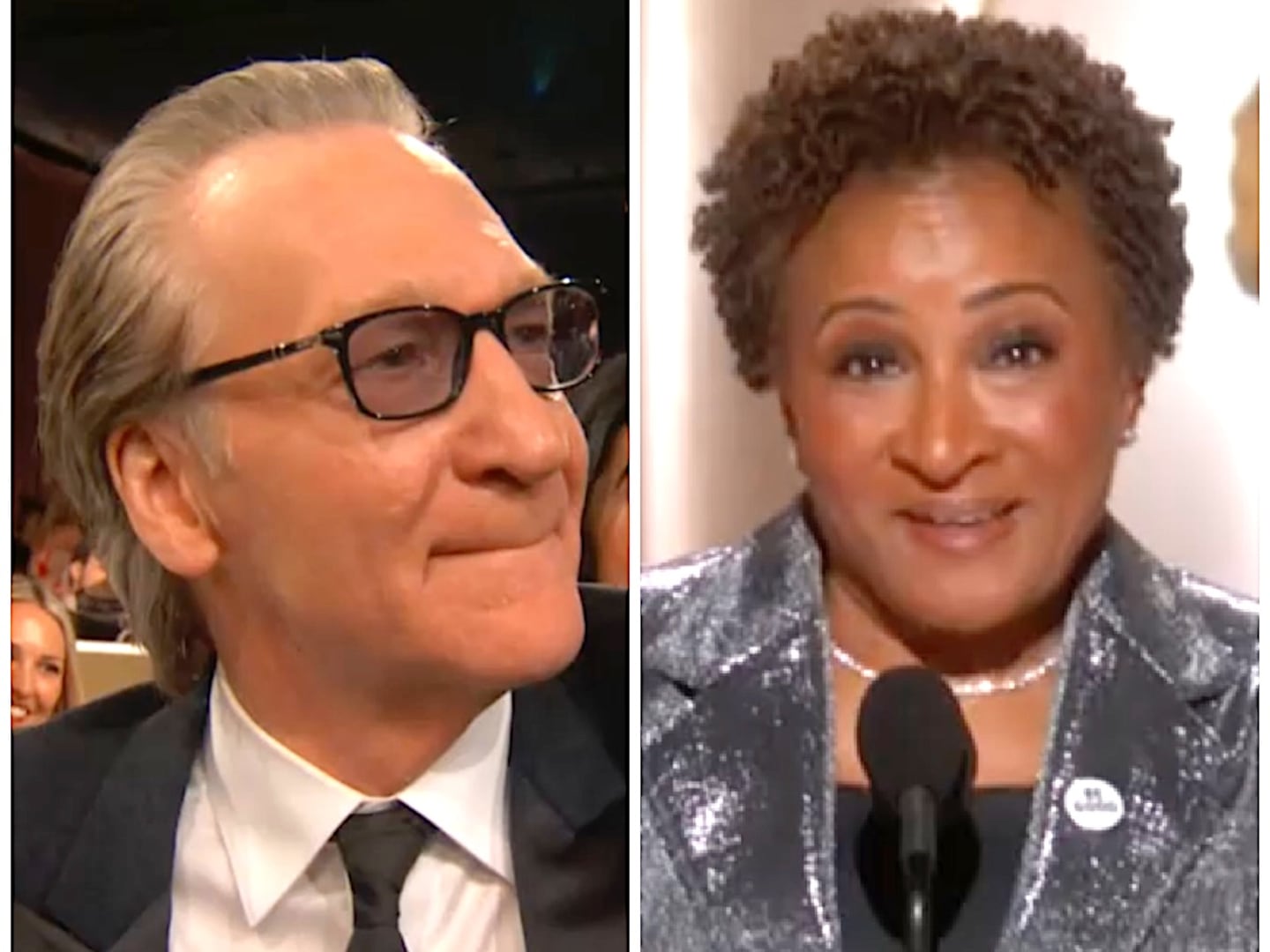Billy Bob Thornton is about as rugged, no-nonsense, and tough as a leading man gets, and he receives a prime opportunity to tap into those qualities—as well as his gift for hard-bitten humor—with Landman, the latest series in the ever-expanding Taylor Sheridan television universe that premieres Nov. 17 on Paramount+.
As Tommy Norris, an oil company fixer tasked with keeping the crude flowing, revenue streams robust, and his boss happy, Thornton is at the epicenter of a sprawling saga about the influential and lucrative industry. He exudes a brand of outsized roughneck brashness that’s at once familiar and distinctive, layered as it is with measures of doubt, guilt, and regret over the mistakes he’s made and the chances he’s squandered. At once larger-than-life and slyly complex, it’s a role that suits him like a well-worn glove, and his performance reaffirms his talent for playing Southern men with big-time attitude and the cojones to back it up.
Thornton first crossed paths with Sheridan courtesy of a guest spot on 1883, and that gig inspired the mogul to write Tommy specifically for him. The result is a show that feels tailor-made for the 69-year-old headliner, whose protagonist finds himself beset by all manner of dilemmas, be it threats from a Mexican cartel, stresses involving his grown kids (Jacob Lofland and Michelle Randolph), pressures from his employer (Jon Hamm, whose bigwig is married to Demi Moore), or attempts by his ex-wife (Ali Larter) to rekindle their flame, regardless of the fact that she’s currently remarried.
In many respects, Landman—the story of macho titans trying to maintain their grips on power—is prototypical Sheridan. Yet the actor brings his own force of personality to the proceedings, providing it with not only its requisite bluster and biting wit, but also hints of melancholic remorse and fear as Tommy grapples with his rocky past and uncertain future.

Ever since he burst onto the mainstream scene with 1996’s Sling Blade, Thornton has been one of Hollywood’s most unique artists, so his return to the small screen (following Prime Video’s four-season legal drama Goliath) is a more than welcome one. On the eve of Landman’s premiere, we spoke with the Oscar-nominated star about beer, oil, music, Texas, Sheridan, and his undisputed domination of the Christmas movie season.
Your Landman character Tommy is an alcoholic who drinks a lot of Michelob Ultra because, by his account, it has so little alcohol that it doesn’t count as such. This has likely nixed your chances of nabbing a Michelob commercial, right?
[Laughs] Well, I drink Bud Light, so I’m okay.
But it was a really funny thing in there. There are a couple of scenes throughout the series with the bartender and I jousting with each other over that subject, where I’m saying, “I really don’t drink.” There’s a thing that we call “Nashville sober,” and with a lot of the country music cats that I know down there, they say, I quit drinking about two years ago—I just drink wine. I guess they consider it food because the Italians do. So when they’re just drinking wine, they think they’re over-drinking, because they quit drinking whiskey or whatever.
That’s obviously the safe way to manage your alcohol.
You have wine with your meal—it’s just food. But it’s 20-25 percent alcohol [laughs].
Taylor Sheridan wrote Landman with you in mind. I assume that put a lot of pressure on you to accept the part?
For sure. I had pretty much agreed to it even before I read the first script, to be honest with you, which I’ve only done a couple of times in my career. I did that with the Coen Brothers once when I did The Man Who Wasn’t There. They called me on the phone, both of them were on, and they said, how would you like to play a barber in 1949? I said, yeah, I’d love to [laughs]. You just know the stuff they’re going to do is going to be great.
How’d this one come about?
With Taylor, I had done this cameo on 1883, and I liked his style and had a great time down there with my old pal Sam Elliott and Tim [McGraw]. Then they had the premiere in Las Vegas, and like I said, I just had a cameo, but when there are any names in something, they want you to all be there [laughs]. So I go up there to Vegas, and afterwards, they had a dinner and Taylor is sitting next to me and he said, I’m writing this show around you. It’s called Landman. I’m going to write it in your voice. It’s set in the oil business in West Texas in the 2000s, and your character’s Tommy Norris and he’s essentially you if you were a landman.
I was intrigued, because you don’t see the inner workings of the oil business much in a movie or a TV show. I love Giant, the movie was Rock Hudson, James Dean and Elizabeth Taylor, so I thought it had the potential to be that. Then when I read it, it’s like, yeah, it kind of is Giant, only more dangerous and more edgy. I was all for it, and when I read the first script, he did get my voice. It sounded like me being a landman.
Did that make Tommy an easier role to inhabit, versus a character that was created separately from you?
In my belief, you want to take roles that are right for you. I was making a joke the other day at a Q&A—well, it wasn’t really a joke, but I was saying, look, we got plenty of Texans so we don’t need people from other countries playing Texans. And by the same token, we don’t need to go over there and play Churchill, and if you’re going to do a movie about Charles de Gaulle, get a Frenchman, because he’ll be way better than me at it. Because if you put yourself into roles, it’s going to be your strongest work. It just is.
Now, easy to get into and understand? Yes, Tommy was. Easy to play? No, because you have all these things swirling around you. You’re in the West Texas heat and you’re doing two- or three-page monologues. It was pretty challenging. But at least I was in my own skin., you know?

Was it appealing to not only depict the oil business and the world around it, but to do so in a complicated manner?
These days, pretty much everything is politicized; there’s hardly anything you can talk about that’s not politicized. The good news about this show is that it just presents to you what happened in West Texas in the 2000s, and the names have been changed to protect the innocent [laughs] It’s really just a look inside that world. But what this show is really about is the relationships and how people are affected. People who work within the oil industry and then their immediate family and extended family—how it affects all these people and how it affects you.
And being torn, because Tommy’s a torn guy. The cartel is using part of his land, and they’re saying, look, you leave us alone, we leave you alone. Those are the interesting characters to play. You don’t want to play just some milk drinking guy. You want to be a complicated character. That’s the whole idea of acting.
That makes sense.
I tell people, we used to watch movies without an agenda. We just watched the movie. If you’re watching a movie about a serial killer, and the movie is great, it doesn’t mean you love serial killers. It just means you thought the movie was great. I think if people watch things without an agenda…and sometimes, they won’t even see it at all because of their agenda. It’s like, take a peek inside there! You might learn something.
Landman isn’t exactly a one-note celebration of the oil industry.
When we have a viable alternative [to oil] that’s proven and we can actually do this, I think everybody’s for that. That would be amazing. If they suddenly made it where you could use water to run cars and airplanes and stuff, the oil guys would just get into the water business. They’re a group of business guys, so that’s what they’re going to do. But the show isn’t really pro or con when it comes to oil. It’s just, here’s what happened in this story. That’s all it is. But mainly, what I hope people get from this is, how relationships work and this kind of world. Because they work this way in any kind of world.
By the way, Landman is about oil, so that’s obviously the corporation we talk about, but there are many other corporations that may need readjusting [laughs]. Like the pharmaceutical industry, and what a powerful lobby that is in Washington. We’ve seen what happened with that.
You’ve played Texans (and Southerners) before, but with a role like this, did you feel compelled to do research, such as hanging out around oil derricks and oilmen?
For sure. It almost feels like Texans in general, but particularly West Texans, grew out of the ground into this land like plants. It’s in them, you know what I mean? [laughs] In terms of authenticity, I grew up in Arkansas and Texas; I came to California from Texas in 1980. So I know that world, and I know those people. The only thing I had to do was, when you’re doing a performance in anything, if you don’t know what you’re talking about—if you don’t know what the words mean—then audiences are not stupid. They will catch on if you’re just reciting lines that you’ve memorized. Some of the audience may not even be conscious of why, but they get it.
You’re also a musician, both as a solo artist and with your band The Boxmasters, and there’s a lot of music in Landman. Was there any dialogue about including some of your songs on the show?
It’s funny because sometimes people assume that The Boxmasters, and my solo days too, were country. We only did two records where we said, what if Frank Zappa combined the British invasion with hillbilly music? We did those first two records as experimental records. But that’s not what we sound like at all. We’re somewhere between a rock ‘n’ roll and a punk band, which is us these days. I grew up playing nothing but rock ‘n’ roll, and we just had those two records that did it.
In terms of your question, I keep my music career separate from that stuff. I told Taylor, I would never want a performance by me in the show. I think that’s a little odd, you know? But what I did do is I co-wrote a couple of songs that I think are going to be used in the show, and they are country songs. I’m not a country songwriter, but I wrote it with a country songwriter or two, and it was fun to do with them, even though it’s not my bag. I don’t mind having my name on a song with somebody else, but in terms of actually putting our band in it, I don’t think I would.

Lastly, I have to tell you that in all my years of moviegoing, I’ve never laughed as hard in a theater as I did seeing Bad Santa. I thought I was literally going to pee my pants.
[laughs] I appreciate that, first of all, because I laughed like that when I read the script. My wife thought I was crazy. But yeah, that’s become a favorite every Christmas. I’ve got Love Actually and Bad Santa every Christmas, and they couldn’t be more opposite.
And by the way, in Bad Santa, I actually peed my pants in the movie, if you remember! [laughs]

